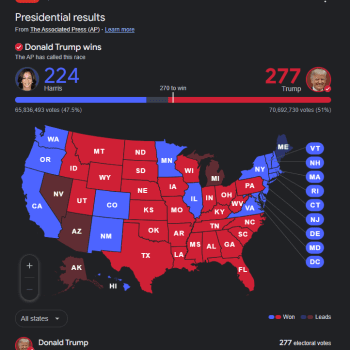This past Sunday in my Sunday school class, we reached Romans 9. I was struck recently for the first time by the possibility that Paul’s use of texts in this section might be profoundly and perhaps intentionally ironic.
The idea that God hardened Pharaoh’s heart, and that God hated Esau, have something in common – and not just the fact that they represent problematic and objectionable details in Scripture.
They are also traditional affirmations of divine election of the Jewish people and God’s favoritism towards them against their enemies.
It is perhaps better to view Paul as doing something similar to what he did in Romans 2 and in Romans 4: he is using Jewish proof-texts for the view he opposes, and turning them back on his opponents.
 Paul’s point in Romans 9 is not merely that God is free to choose whomever he will. He starts with the classic election texts – God’s choice of Isaac rather than Ishmael, his choice of Jacob rather than Esau. Paul then uses those very central texts related to Jewish election to argue that God has always restricted and drawn in the boundaries of the chosen people to a select group within a larger number of descendants. And so why should anyone complain that God is not now choosing all of Israel, or all Jews? Surely this is precisely in keeping with the logic of election, the election in which Paul’s Jewish contemporaries boasted of their elect status.
Paul’s point in Romans 9 is not merely that God is free to choose whomever he will. He starts with the classic election texts – God’s choice of Isaac rather than Ishmael, his choice of Jacob rather than Esau. Paul then uses those very central texts related to Jewish election to argue that God has always restricted and drawn in the boundaries of the chosen people to a select group within a larger number of descendants. And so why should anyone complain that God is not now choosing all of Israel, or all Jews? Surely this is precisely in keeping with the logic of election, the election in which Paul’s Jewish contemporaries boasted of their elect status.
Paul is turning the tables on them.
By Romans 10-11, Paul will of course indicate that those who have fallen and missed the boat are not in fact excluded, not fallen beyond recovery. Even if they are branches broken off the tree, they can be grafted back in.
And so ultimately Paul doesn’t seem to want to say that anyone is genuinely “elected out” or “deselected” from participation in the covenant people.
Why then use such difficult and objectionable texts?
 Perhaps it was precisely because those texts were being used against him and his Gentile mission. Perhaps they were being quoted by his opponents that God loves some and hates others.
Perhaps it was precisely because those texts were being used against him and his Gentile mission. Perhaps they were being quoted by his opponents that God loves some and hates others.
It seems to me that Paul uses these texts of divine hatred ironically and subversively, turning them back on those who utilized them as weapons of exclusion. But his doing so is not ultimately to affirm divine hatred and exclusion, but to undermine the very notion by turning those texts on their users and then emphasizing the opportunity for them to be included even so, even though he has made them out to be excluded in precisely the way that they claimed Gentiles are excluded.
I don’t think there can be any doubt, having reflected on this, that there is something ironic about Paul’s use of these texts about election and divine hatred. The only question, in my mind, is whether Paul was being intentionally ironic.
What do others think?












